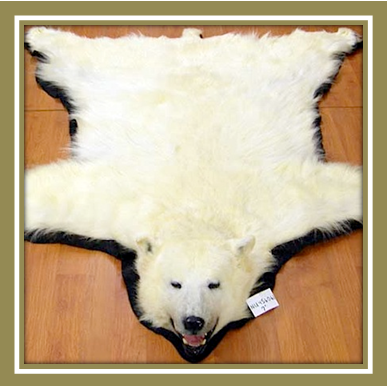News
Latest Lion Aid News
Communication from the European Commission – Great news for lions but also good news for the Argali and Polar bears…
Tuesday 21st October 2014
|
No more of this in the EU?
The EU Directorate of Environment has now submitted draft changes to the EU Council and Parliament that will require import permits for hunting trophies of the following species: White rhino Polar bear The Council and Parliament are expected to approve the changes before the end of 2014. As we explained earlier , this gives the EU member states much greater independent control over existing CITES regulations, and allows member states to refuse imports of hunting trophies of those species for which the EU Scientific Review Group is not satisfied that the offtake is sustainable and/or that insufficient information is available about population numbers to justify continued trophy hunting offtake. In addition, existing “negative opinions” arrived at by the EU Scientific Review Group will now carry over to all hunting trophies from those listed species as well. This greater latitude over imports of what were once items (hunting trophies were considered “household and personal effects”) exempt from trade considerations under CITES is meaningful and encouraging to say the least. It is highly interesting to us to see inclusion of the Polar bear on this list. As you might remember, during the last CITES Conference of Parties in March 2013, the EU joined the USA and Russia among other nations to support listing of Polar bears on CITES Appendix I. This would have halted all further trade in Polar bears – but ALL EU votes were then nullified by resistance from Denmark (the EU votes as a bloc but all member states need to agree, otherwise the entire EU has to abstain, a loss of 28 votes). The uplisting of Polar bears was defeated, but now, as with lions, the EU can make decisions independently (and more stringently) than CITES. It will be very interesting to follow the future changes of Polar bear trophies into the EU. The USA has already banned Polar bear hunting trophies. Within the EU, Denmark (perhaps the reason for their objection) is the largest importer of Polar bear products with 150 skins alone over the five year period 2008-2012 – from a rapidly declining species? Was the information that Denmark had to resist the uplisting based on better information about the status of Polar bears not available to other nations or did the Danes bow to pressure from vested commercial interest groups in their Greenland Dependency? These sorts of self-interested decisions will hopefully now not be able to influence trade in significantly endangered species by continued commerce, as any EU member state has the right to raise objections to further imports of products from the species now listed. That objection will now need to be dealt with scientifically rather than politically. The EU Environment Directorate is to be thanked for this positive development, and we urge them to consider the entire issue of “sustainability” of trophy hunting offtake of a greater variety of species in the future. The relevant text of the EU is as follows :
The text of the draft Regulation amending Regulation 865/2006 has been subsequently sent to the Council and the European Parliament for their right of scrutiny. Unless the Council or the Parliament objects to the adoption of this Regulation (which can be done within a period of three months after receiving the document), the changes to Regulation 865/2006 will be adopted at the end of 2014. The adoption of the changes to Regulation 792/2012 will occur at the same time.” Picture credit: http://bit.ly/1uA1P2X If you have not already signed up to our mailing list, you can add your name here and keep up to date with our ongoing work and, most importantly, DONATE to support our work to conserve the remaining fragile lion populations. Tags: Lion, EU, white rhino, elephant, argali, household and personal effects, Categories: Trophy Hunting, Domesticating Animals |
Add a comment | Posted by Chris Macsween at 17:27




